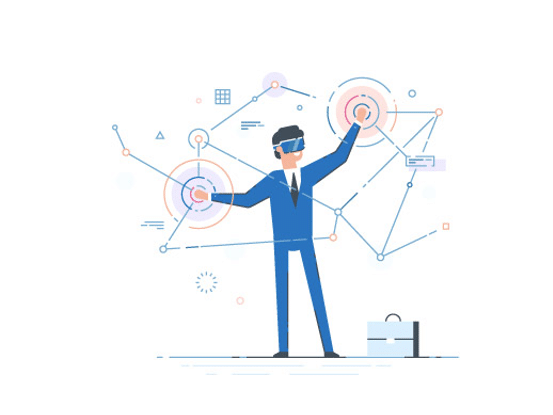Businesses in industries across the board are facing a new challenge: find ways to utilize AI or risk getting left behind. The legal industry is no exception. Some contract professionals looking to innovate their contract processes may view AI as an exciting new tool while others remain skeptical about what it can accomplish and whether or not its adoption could have potential consequences. Join us as we explore the current use cases and limitations of AI in contracting and how contract professionals can choose to approach AI implementations for the best results.
The Current State of AI Technology
AI has reached a level of sophistication that allows it to analyze vast amounts of data, recognize patterns, and make predictions with remarkable accuracy. In the context of legal professionals, especially those who handle contracts, this translates into an opportunity to streamline and enhance various pieces of the contract lifecycle.
AI technologies, such as natural language processing (NLP), machine learning (ML), and generative AI (GenAI), have been fused into many different CLM tools on the market, allowing contract professionals to sift through extensive legal documents and extract both relevant information and data-driven insights about everything from contract performance to risk assessment. These technologies also contribute to the automation of routine tasks, freeing up more time for legal teams to focus on complex, high-value aspects of their work instead.
At the moment, AI is not in a state where it can replace the decision-making power of humans, especially in an industry as risk-averse as the legal industry. However, those who fail to adapt to AI and take advantage of its benefits may find themselves falling behind when it comes to the speed and efficiency of their contract lifecycle.
AI Use Cases in Contracting
Let’s explore a few specific use cases for AI in the contract lifecycle in greater depth.
Automated Contract Review
One of the most significant advantages of AI in contract management is the ability to automate the review process. AI-powered tools can swiftly analyze contracts, identify key clauses, and flag potential issues. This helps expedite the review process while also minimizing the risk of human errors.
Contract Drafting Assistance
GenAI technologies can assist contract professionals in drafting agreements by offering language suggestions based on historical data and industry standards. This practice accelerates the often lengthy drafting process and ensures consistency and adherence to previously established guidelines.
Risk Assessment
AI enables contract professionals to assess risks more comprehensively by analyzing legacy data and predicting potential pitfalls. This proactive approach allows for better risk mitigation strategies and ultimately strengthens the legal team’s overall risk management framework.
Performance Monitoring
All legal teams know that contract management is an ongoing process of continuous improvement. AI analytics can be used to monitor contract performance over time, keeping track of KPIs and identifying trends that may have otherwise gone unnoticed.Contract professionals can then use this information to make data-driven decisions that will optimize the business’s contract processes.
Limitations and Concerns
Like any technology, AI comes with its fair share of limitations and a few risks. Here are a few concerns to keep in mind.
Lack of Emotional Intelligence
AI still lacks the human touch, especially in negotiations where teams rely on emotional intelligence to build strong relationships with vendors and clients. The nuanced understanding of human emotions, context, and the ability to navigate delicate situations remains a challenge for AI systems, so it’s safe to say that the pivotal decisions taking place during contract negotiations will remain in the hands of the legal and commercial teams for some time.
Inaccuracies
According to a survey conducted by Agiloft, inaccurate AI outputs are a top concern among contract professionals. Depending on the AI tool you use, you can expect an accuracy rate between 70-90%. For risk-sensitive contracts, that 70% won’t cut it. It’s important for legal teams to pay close attention to their AI tools and train them with their own internal documents as much as possible to lower the risk of inaccurate outputs.
Data Security and Privacy
Perhaps one of the most notable problems with AI currently is the issue of data security and privacy. Contract professionals should take steps to ensure that the AI systems they choose to use adhere to strict cybersecurity measures that safeguard confidential information for both internal and external parties involved.
How to Approach the Use of AI in Contracting
Check out these approaches to integrating AI into contracting processes. Each approach has its own merits, and legal teams can choose to either focus on one or create their own hybrid implementation strategy.
Education and Training
To fully harness the potential of AI, contract professionals should invest in continuous education and training. Understanding the most recent updates in the capabilities and limitations of AI tools enables legal teams to integrate them into existing workflows in the most optimal way possible.
Collaboration Between Humans and AI
Instead of viewing AI as a threat, contract professionals should try to view it as a collaborative partner. The combination of human intuition and AI-powered efficiency will likely make up the future of contracting, leading to faster processes, more revenue, and higher quality contracts.
Constant Monitoring and Adaptation
The field of AI is extremely dynamic, with tools constantly evolving. Contract professionals must strive to stay informed about the latest advancements, regularly assess the performance of their AI tools, and be willing to adapt their strategies accordingly.
Embracing AI in contracting requires a nuanced understanding of its current state, its potential use cases, and a proactive approach to addressing the associated limitations and concerns. By adopting a balanced and strategic AI integration approach, contract professionals can position themselves at the forefront of innovation and head into this new chapter of legal tech with confidence and proficiency.


